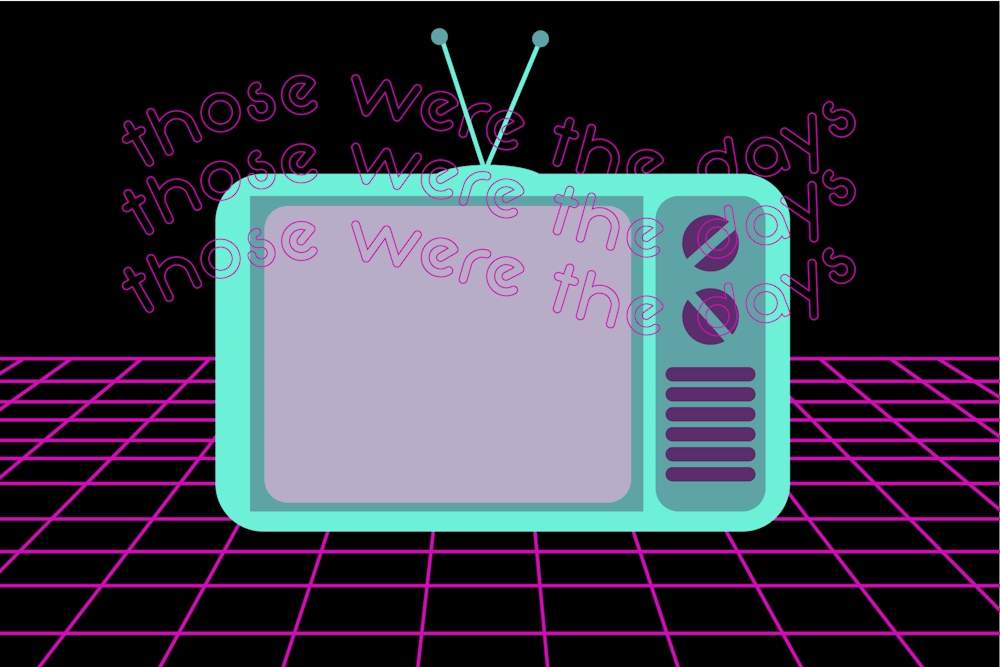What do you get when you cast Cher opposite Nicolas Cage?
It turns out you get something much better than you'd would expect from casting Cher opposite Nicolas Cage. The proof? Norman Jewison’s 1987 film Moonstruck—a classic romance that explores themes like love, the passing of time, family, and opera.
The excellent ensemble cast takes a brilliant script over the top in their portrayals of a New York City family. Cher plays Loretta Castorini, a widow who gets engaged to the always–nervous Johnny Cammareri (Danny Aiello). When this mama’s boy goes to Italy to visit his ailing mother, he asks Loretta to find and invite his estranged brother Ronny (Cage) to the wedding. Having dealt with Johnny’s neurotic antics and her own superstitions for years, Loretta immediately falls for the spontaneous, alpha–male Ronny. As she attempts to sort out her feelings, she's informed by interactions with her family: parents Rose (Olympia Dukakis) and Cosmo (Vincent Gardenia) Castorini, aunt and uncle Rita (Julie Bovasso) and Raymond (Louis Guss) Carpomaggi, and her dog–loving, Italian–speaking grandfather (Feodor Chaliapen). The oddball in the otherwise homogeneously Italian–American set of characters is Perry, played by Frasier’s John Mahoney. He’s a WASP–y professor who serially and unsuccessfully dates his younger female students.
Moonstruck was overall an enormous success—it was loved by critics, the box office, and movie–goers alike. It even picked up three Academy Awards in the fiercely competitive 1987 season: Best Original Screenplay, Best Actress (Cher), and Best Supporting Actress (Dukakis). To my knowledge, nothing about the story is “problematic” in the 2020 sense. So why is it not yet beloved by our generation, or considered a classic like Annie Hall or When Harry Met Sally?
To be fair to the world of today, Moonstruck wasn’t consistently appreciated in its day. Roger Ebert claimed that “Reviews of the movie tend to make it sound like a madcap ethnic comedy, and that it is. But there is something more here, a certain bittersweet yearning that comes across as ineffably romantic, and a certain magical quality that is reflected in the film’s title.” And that’s just it: Although its notoriety is sometimes forgotten, a constant faith in the inherent beauty of romance is to Moonstruck what a dry philosophical view of love is to Annie Hall, and to what a celebration of fateful devotion is to When Harry Met Sally.
The world of Moonstruck is a romantic wonderland that takes tonal inspiration from the Puccini opera, La Bohème. One of its most memorable scenes features Loretta attending La Bohème at the Metropolitan Opera House with Ronny. He promises that if she does this, he'll stop pursuing her. As a last favor to Ronny before she returns to his brother, Loretta does her part in making the date perfect. During her makeover, she sheds the grey from her hair, and with it the hard shell she formed around herself after her first husband’s death. Both of these characters have witnessed sadness. Yet both can bask in the thrill of “going to the opera,” an almost magical experience. Magic is welcome in Moonstruck, as the movie itself prioritizes artistic opportunities over realism. This allows it to push motifs, such as giant moons, beyond their limits, all in the name of capturing the purest representation of romance.
A unique aspect of Moonstruck is its multifaceted exploration of infidelity. I struggle with films that expect me to root for a protagonist as they engage with someone who isn't their significant other—no matter how bad the significant other is. For instance, I felt uncomfortable watching You’ve Got Mail, where the characters flirt while maintaining their relationships with some truly questionable personalities. But watching Moonstruck, a film where the plot is driven by Loretta’s affair with her fiancé’s brother, I am captivated. Why ?
Perhaps it's the fact that Loretta is painfully aware of what’s wrong with her actions. She isn’t naively ignoring the fact that she’s engaged, all in the name of love. In fact, she's made miserable by love as it pushes her to do things she considers unethical. While romance may be lauded in this movie, love is portrayed as cruelly blind and manipulative.
Alternatively, maybe it's the juxtaposition of Loretta and Ronny’s affair against that of her father and his mistress Mona (Anita Gillette—known to some as Liz Lemon’s mom). Unlike the passionate, futile fight against emotions that Loretta and Ronny experience, Cosmo is fueled by his own greed and fear of death—not by a lack of love for his wife and family. In a piece of genius screenwriting, Rose discusses "why men chase women" with Perry after realizing Cosmo is having an affair. It's an unlikely pairing, but the lonely older woman connects with the lonely middle–aged man. Cosmo is chasing Mona for reasons independent of his love for Rose, and this type of purposeful infidelity is distinctly more nefarious than Loretta and Ronny’s helpless adoration of one another.
Ultimately, Moonstruck’s main teaching is that love and romance, together, are a lucky combination. Rita and Raymond set the example of this, Loretta and Ronny struggle against it, Rose and Cosmo strive to return to it, and Perry just tries to understand it. But to the viewer, its value is crystal clear.
The unique blend of a magical atmosphere, intellectual dialogue, and genuine humor and warmth makes Moonstruck one of the great films of all time. Those of you who haven’t joined the train of accepting its brilliance should “snap out of it!” as Loretta would say. Until the Met reopens its doors, let Moonstruck be like your own trip to the opera—captivating, whimsical, and beautiful.







